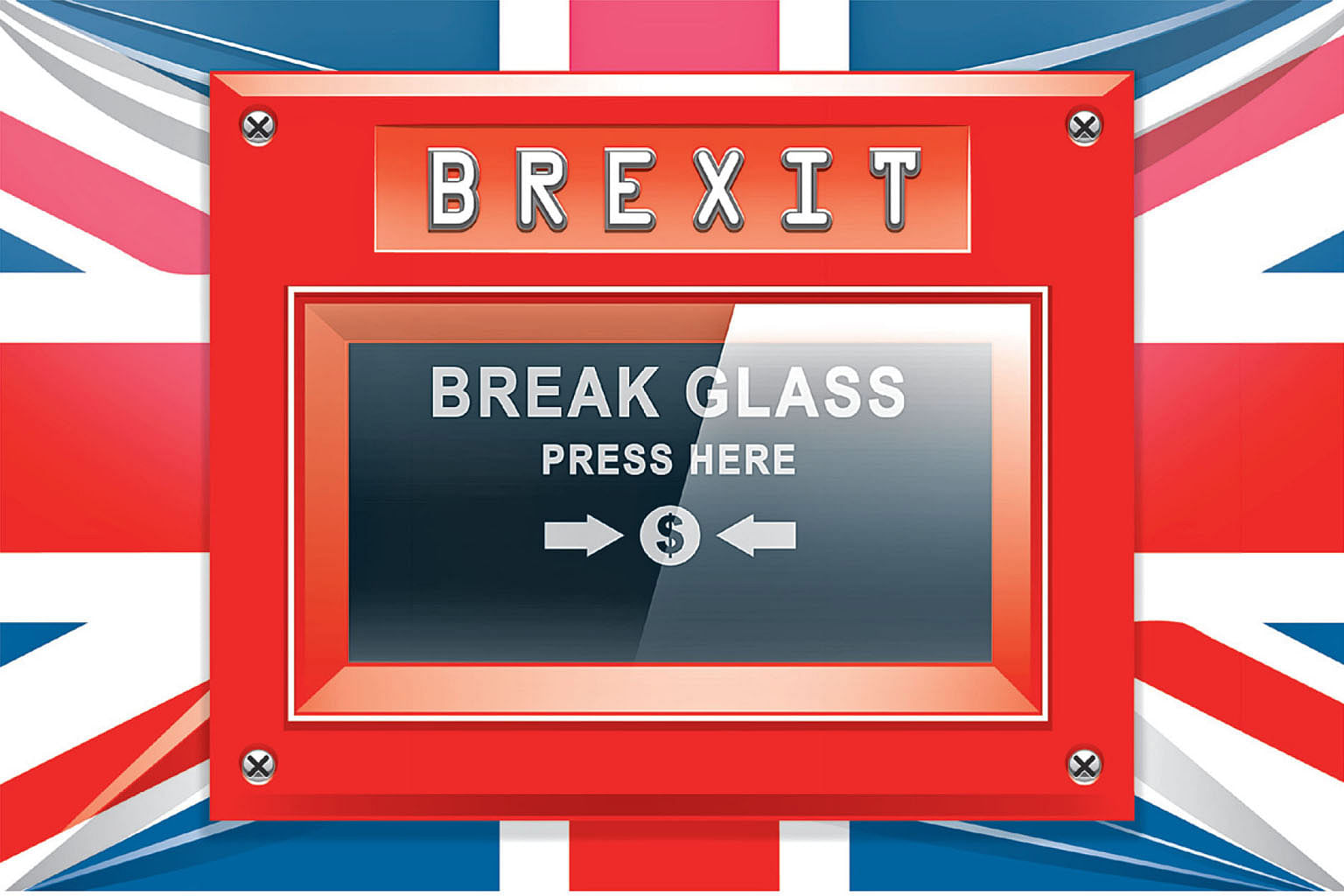When Britain voted to leave the European Union on June 23, everyone - those I know and spoke to, at least - was stumped.
The historic decision dominated the media everywhere. Financial markets were hammered, with about US$2.6 trillion (S$3.6 trillion) wiped off the value of equities worldwide. The British pound crashed to its lowest level against the US dollar in more than 30 years.
For me, the stream of Brexit jokes and memes that took social media by storm was probably one of the better things that came out of this. It helps to know that the world still has a sense of humour amid the shock.
("Meanwhile India is just blown away that you can get Britain to leave by voting," wrote one Twitter user Bobby Big Wheel. Or, that "#Brexit2" became a popular hashtag after Iceland ousted the English soccer team from the Euro 2016 tournament.)
But jokes aside, and on a more serious note, young investors in Singapore, like myself, have a lot to learn from the event.

Financial markets have recovered somewhat since, but it is scant comfort knowing that Singapore will emerge from this relatively unscathed only for now, until there is more clarity on the longer-term implications should Britain enact its exit.
Brexit caught many investors off-guard. I suppose most of the younger ones would be relatively shielded from any immediate impact from the event, which, in fact, also presents a buying opportunity. A poll looking at post-Brexit sentiment among investors in Hong Kong and Singapore found more than 40 per cent of respondents from the two cities saying they would look for new opportunities.
In Singapore, notably, 45 per cent of respondents who expect to see more global investment opportunities are investors within the 25 to 29 age bracket, while those 50 and older showed greater caution.
It does seem that now is a good time for young investors to pick up quality assets at a discount to beef up their portfolios for the long haul.
After all, time is supposed to be on our side, going by the theory of buying into assets when they are in the red and taking our money out many years later, compounded with rewards, with all other things being equal.
And there are indeed "encouraging pockets of resilience" across asset classes amid the market turmoil, said Mr Wong Hur Ming, head of South-east Asia retail at Henderson Global Investors, which manages more than US$133.3 billion in assets worldwide. He noted that real estate investment trusts (Reits), for instance, have fared relatively well, and could even outperform the broader stock market, given their defensive qualities and attractive yields. "But in general, we encourage young investors to consider holding a long-term investment view while focusing on companies with high-quality franchises, secular growth drivers and positive earnings prospects," said Mr Wong.
In addition, of course, I believe that the cardinal rule of investing should still apply: Do your homework first.
That gold, for example, has held up well amid Brexit - spot prices are up some 26 per cent this year to around US$1,335 - has clearly not escaped the attention of investors.
But Mr Vasu Menon, vice-president and senior investment strategist at OCBC Bank's wealth management unit, is not hopeful that gold will rally another 15 to 20 per cent from here.
"It has already done pretty well. Going forward, if the (United States) Federal Reserve increases interest rates once the dust settles, the US dollar is going to strengthen and that is going to (drag down) gold prices," said Mr Menon.
"So yes, in the short term, gold prices might get a boost, but if you look six to 12 months down the road, there isn't a strong case for investors to be very long on gold."
Asset-picking aside, the broader idea is to know that the global investment landscape has changed significantly in the past few years and that it will likely continue to change in the coming years.
Anything can happen. Think Donald Trump in the US. Brexit was one of those things that did happen against expectations. And it is important we keep this in mind and brace ourselves for more political and economic uncertainties, which are here to stay.
At this point, it probably makes sense to look at our own investment portfolio and ask ourselves if it is sturdy enough to weather more of those storms.
Mr Menon's advice? Diversify.
This means spreading your investments across asset classes, which over time, through a dollar-cost averaging strategy, may offer better risk-adjusted returns.
The volatility that has racked markets globally in recent months "makes a strong case for adopting a multi-asset investment strategy", said Mr Menon.
"Don't just invest in stocks, but also consider bonds and other asset classes for diversification."
Still, if it is of any comfort, the dramatic drop in the pound means a much better exchange rate against the Singapore dollar, compared with the days when sterling was worth three times as much.
So for those who have been waiting for the right time to book that vacation to London, now seems like a good time - that is, if you can get your hands on those highly coveted pounds at the money changer.


